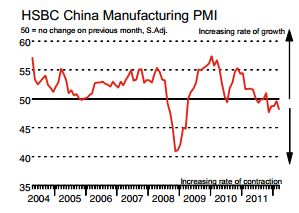US President Barack Obama has urged European leaders to prevent a looming overseas debt crisis from dragging down the rest of the world. He said Europeans must inject money into the banking system.
“The solutions to these problems are hard, but there are solutions,” he said.
The president spoke on Friday after several days of difficult turns for his re-election prospects, including last Friday’s report that the unemployment rate had risen slightly to 8.2 per cent in May as job creation had slowed, and new signs that the European debt crisis was hurting the US economy.
Market attention is focused on Spain, whose banks need billions of euros in bailout funds and where unemployment is at a eurozone high of 24 per cent and the economy is stretched to breaking point.
The Spanish government appears to have resigned itself to banks needing a bailout.
Prime Minister Mariano Rajoy has moved on from firmly stating “there will be no rescue of the Spanish banking system” 10 days ago to avoiding ruling out seeking external help for the sector.
Spain has been criticized for being too slow to set out a road map to resolve its problem. European business leaders and analysts have stressed Spain must find a solution quickly so it’s not caught up in any market turmoil after the Greek elections on June 17.
In his brief White House news conference Obama also mentioned Greece, where the elections could determine whether Athens leaves the eurozone, particularly if the anti-bailout left-wing Syriza becomes the largest party in parliament.
Euro Dollar:
EURUSD (1.2514) The dollar gained ground against the euro on Friday as worries rose about Spanish banks and the eurozone debt crisis and central banks offered little sign of fresh economic stimulus.
The euro fetched $1.2514, losing ground against the dollar since the same time Thursday, when it traded at $1.2561.
The single currency shared by 17 nations fell to 99.49 yen from 100.01 yen.
The euro endured selling for the entire session, but was able to halve an early loss so that it ended the day about 0.5 percent lower.
The Great British Pound
GBPUSD (1.5424) Sterling retreated from a one-week high against the dollar on Friday as demand for safe-haven currencies like the greenback revived on worries about slowing global growth, although losses were checked as it advanced against the struggling euro.
Riskier currencies came under pressure after the U.S. central bank offered no hint of imminent monetary stimulus. Even the Bank of England opted not to extend its asset purchase programme a day after the European Central Bank put the onus on politicians to resolve the worsening euro zone debt crisis.
There was also talk that economic data from Asian powerhouse China at the weekend could be weak and the interest rate cuts on Thursday were meant to preempt the grim news. All these factors would keep sterling subdued in a $1.5250-$1.5600 range, traders said.
Asian –Pacific Currency
USDJPY (79.49) European and Asia stocks fell as Bernanke’s comments weighed and as Fitch Ratings issued a downgrade for Spain, with a negative outlook, saying it could cost up to 100 billion euros ($125 billion) to bail out the country’s banks. A Reuters report said the Spanish government could ask for an aid request as soon as this weekend, citing German and European Union sources.
Also Friday, the dollar bought 79.49 Japanese yen compared with ¥79.62 in late trade on Thursday. The greenback rallied about 1% versus the yen this week.
Gold
Gold (1584.65) futures ended the week lower than when they started the metal rose $7 an ounce during Friday’s trading to end at $1,595.10 late in New York.
Given the ongoing uncertainty in Europe, and the recent rate cuts by some central banks, many traders don’t want to go into the weekend betting against gold. There is the very real potential of some gold-bullish development over the weekend, and therefore the risk of being caught on the wrong side of the trade with the markets closed.
Those potentially gold-bullish developments include fresh economic data from China which over the weekend will release its industrial production for May as well as trade data. Further indications of a more severe than thought slowdown in the world’s second largest economy could prompt renewed interest in gold.
The possibility of Eurozone shocks remain high and today even US president Obama weighed in on the topic: It is in everybody’s interest for Greece to remain in the euro zone and respect its prior commitments. The Greek people also need to recognize that their hardships will likely be worse if they leave the euro zone.
Spain is expected to ask the Eurozone for help with recapitalizing its struggling banks this weekend. Spain would be the fourth country to do so.
On Thursday August gold contracts fell almost $50 an ounce, crashing through the psychologically important $1,600 an ounce level following Federal Reserve Chairman, Ben Bernanke’s testimony to Congress which outlined that the Fed was prepared to provide further easing.
Crude Oil
Crude Oil (84.10) has fallen slightly on the prospect of weak economic growth with no immediate assistance from the US Federal Reserve.
Oil ended the week at $84.10 per barrel on Friday, within $1 of its close last week. It remains near its lowest level since October of last year.
Higher oil production and weakness in economies burning less petrol and other fuels have helped push down crude prices 14 per cent in the last month and 25 per cent from a high in February.
US drivers have welcomed the lower oil prices, though. Retail petrol prices have fallen steadily since their peak of $3.94 a gallon April 6. The national average fell half a cent to $3.555 Friday, according to the Oil Price Information Service, AAA, and Wright Express.
US benchmark crude fell 72 cents Friday, a drop of 0.8 per cent. Brent crude, used to make petrol in much of the US, fell 46 cents to $US99.47.



